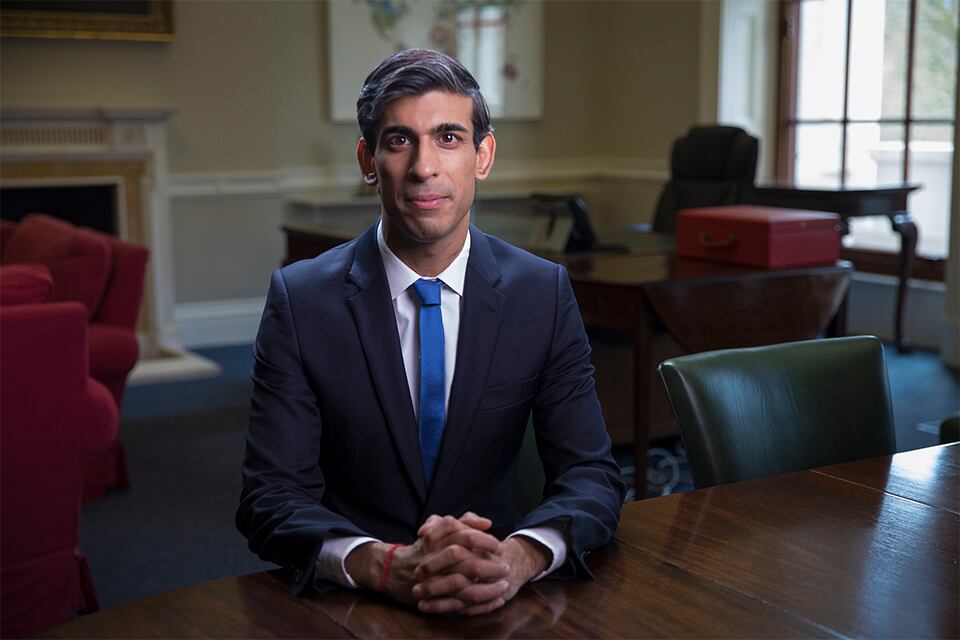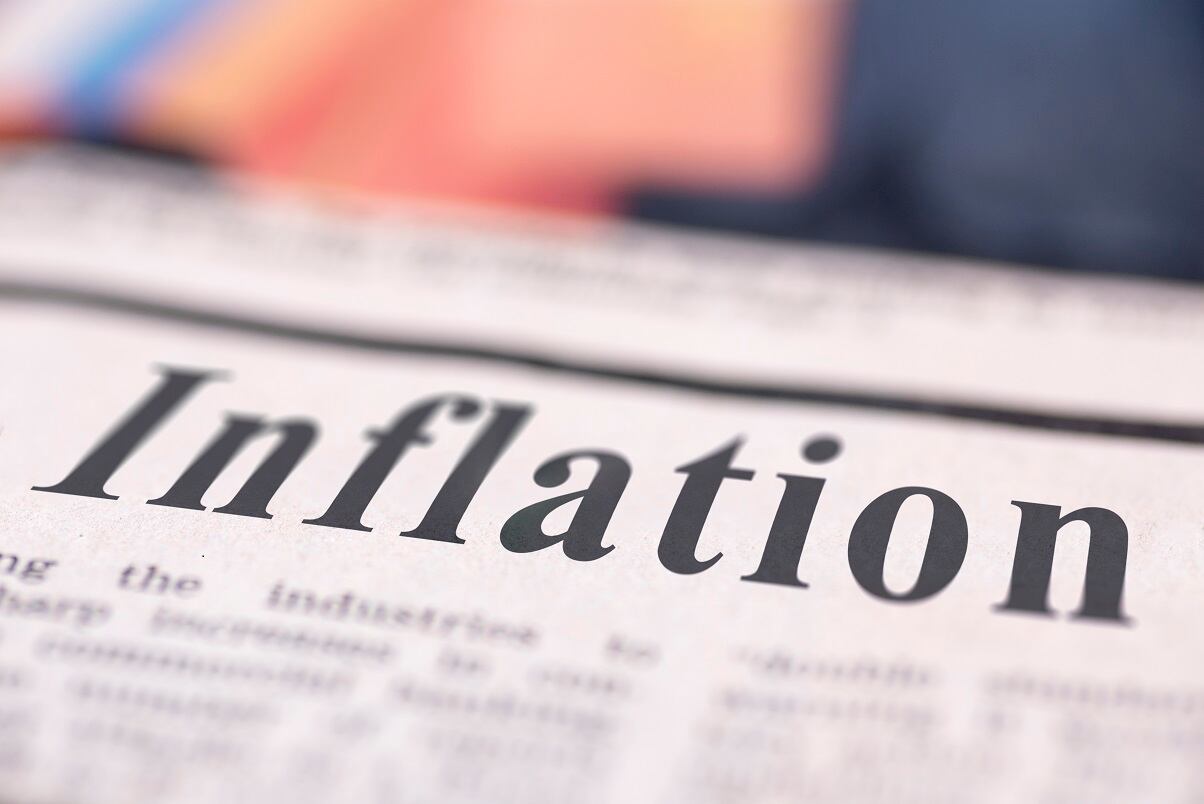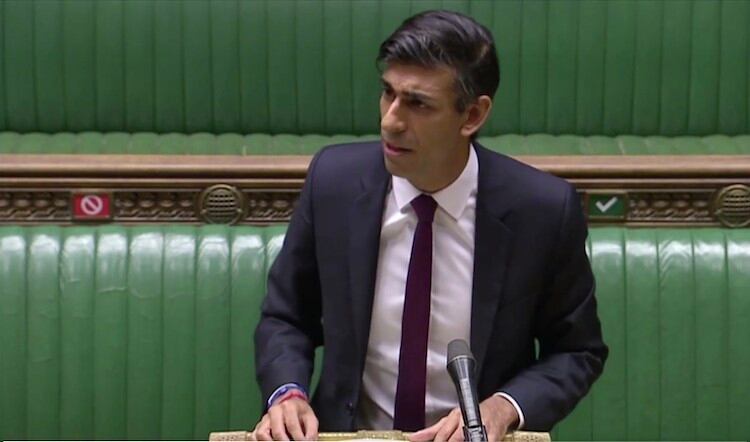He announced a fuel duty cut 'for only the second time in 20 years', effective from 6pm tonight (23 March) for 12 months - 'the biggest cut to all fuel duty rates ever'.
For the next five years, domestic energy saving materials, such as solar panels and heat pumps or insulation, would incur no VAT (versus 5% previously), he said. As a result a family installing solar panels would see tax savings of £1,000 and annual savings of over £300 on energy bills.
Wind and water turbines would also have 0% VAT added. However, these benefits could not currently be enjoyed by Northern Ireland because of the Northern Ireland protocol, although the Government would ensure they would receive a share of the relief and press the matter with the European Commission.
Doubling Household Support Fund
As a third measure, Sunak said he would be doubling the Household Support Fund introduced last year to £1bn, with £500,000 of new funding channelled through local government.
Sunak said he could have gone further, but had been cautious so as not to increase the UK's debt burden too much, warning: "We should be prepared for the economy and public finances to worsen potentially significantly and the cost of borrowing is continuing to rise. In the next year, we are forecast to spend £83bn in debt interest - the highest on record and almost four times the amount we spent last year. That's why we have already taken difficult decisions with the public finances and that's why we will continue to weigh carefully calls for additional public public spending. More borrowing is not cost- or risk-free"
He said the UK had boasted the highest rate of GDP growth in the G7 last year, but added: "The OBR [Office of Budget Responsibility] has said specifically there is unusually high uncertainty around the outlook. It is too early to know the full impact of the Ukraine war on the UK economy."
Inflation to reach 7.4% this year
Based on figures released today, inflation was running at 6.2% in February and according to the OBR would reach an average of 7.4% this year.
He cited OBR forecasts of 3.8% GDP this year, 1.8% in 2023, 2.1% in 2024 and 2.1%, 1.8% and 1.7% in the following three years.
Against this, he said unemployment was predicted to be lower in every year of the forecast.
Tax plans
Still, rising domestic bills would squeeze household budgets, so the Government would do what it could to support the UK population in the form of a tax plan published today. This would include:
- a 1p reduction in income tax from 20p to 19p per pound in 2024 for the first time in 16 years
- adding £3,000 to National Insurance thresholds from July, enabling workers to earn up to £12,570 without paying National Insurance;
- tax cuts on business investment and innovation for introduction in the autumn
- a review of the Apprenticeship Levy to determine if it's doing enough to boost skills
- reform of R&D tax credits to make them more effective and better value for money, to include data and cloud computing and possibly to boost the pot
- a cut on the tax rates on business investment in the autumn budget
- a 50% business rate discount for small retail, leisure and hospitality businesses up to £110k from April
- employment allowance to help smaller businesses recruit workers increased to £5k from April
Plans to equalise tax thresholds would be introduced as part of the Government's tax strategy over time, Sunak said.
Reaction
Responses to the Chancellor's statement were mixed.
Karen Betts, chief executive of the Food and Drink Federation, welcomed efforts to help households handle the cost-of-living crisis and urged the Government to consider additional measures: “Today’s ONS figures show prices for food and non-alcoholic drinks rose at the fastest rate since September 2011. This reflects the significant rises in ingredient, raw material and energy costs that food producers have been facing for many months now. All indications are that food price inflation is some way from peaking, and we expect prices to continue to rise for some months to come.
“In addition, we need government to consider other measures to cut the cost of doing business, to help stall rising prices, and stimulate growth such as removing complexity and cost from upcoming regulation. By establishing a National Food Security Council, government can help protect the resilience of the UK’s food producers and our food supply by reacting in real time to disruption as a result of turbulence in global commodity markets and international supply chains.”
Make UK slammed the lack of support for business on energy. “The lack of support for businesses to tackle spiralling energy costs is beyond disappointing, and deeply frustrating," said Verity Davidge, director of policy at Make UK. "With manufacturers seeing historically high energy bills, today was the Government’s chance to give businesses much needed support. Reducing the policy costs that make up a large part of overall electricity costs together with a boost to extending energy funds and grants, would have given manufacturers the best chance of cutting their energy bills and keeping their businesses afloat."
Dr Phil James, chief executive of the Chartered Institute of Environmental Health, said: "Rising costs affecting the basic cost of living are likely to exacerbate health inequalities around the country and mean a step back for the Government’s Levelling Up agenda. The Chancellor’s additional funding for vulnerable households is a start but more must be done to ensure that people on low incomes are protected from the worst impacts of the cost of living crisis.”
Brewers and pubs
The British Beer and Pub Association (BBPA) criticised the decision not to extend the 12.5% rate of VAT for hospitality. Emma McClarkin, chief executive of the BBPA said: “We are very disappointed that the Chancellor decided not to extend the 12.5% rate of VAT for hospitality. The sector remains on a knife-edge as it emerges from the pandemic and the impact of the recent energy crisis and invasion of Ukraine has ensured the turbulent times will continue for pubs and brewers just as we had hoped to build the road to recovery. The coming months could be some of the hardest yet for our pubs and brewers."
However, she added: “We welcome the Chancellor’s announcement today to increase the Employment Allowance, the threshold for National Insurance contributions, the planned increase in the income tax threshold and the fuel duty cut. However, the fact remains that these will do little to help the bottom line for thousands of pubs and brewers around the country struggling with increasing overheads and concerned consumers.”
Fuel duty
Logistics UK welcomed the fuel duty cut. “With average fuel prices reaching the highest level on record and rising inflation, there has been an unstainable burden on logistics businesses which operate on very narrow margins of around 1%," said Elizabeth de Jong, director of policy at Logistics UK. "The Chancellor’s decision today will help to ensure operators can continue to afford supplying the nation with all the goods it needs, including food, medicine and other essential items.
"Fuel is the single biggest expense incurred by logistics operators, accounting for a third of the annual operating cost of an HGV. The cut in fuel duty of 5ppl will result in an average saving of £2,356 per year per 44-tonne truck; this move will help to strengthen the UK’s supply chain during a time of ongoing financial and operational challenges.”
However, the National Institute of Economic and Social Research (NIESR) was less impressed. “Increasing tax receipts in the months leading up to the spring statement enabled the Chancellor to cut fuel duty and increase support for households while still keeping to his fiscal targets," said Stephen Millard, NIESR deputy director for macroeconomics. "But, higher inflation, rising interest rates and lower growth could soon lead to a need to either abandon the targets or raise taxes going into the next election.”
Professor Arnab Bhattacharjee, research lead and NIESR fellow, added: “The announcements in the spring Statement fail to help the poorest in society who bear the brunt of the cost-of-living crisis. £1bn through the Household Support Fund is welcome but not enough. To support low-income households and stop many thousands more from sliding into destitution, the government should have at least reinstated the Universal Credit uplift to £20 per week, together with targeted financial support for food banks and free school meals.”




